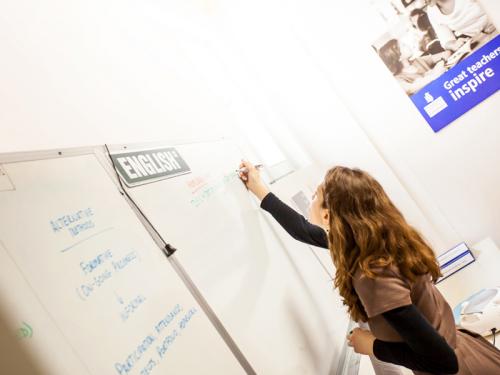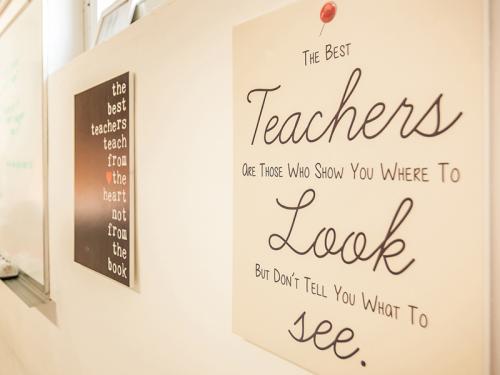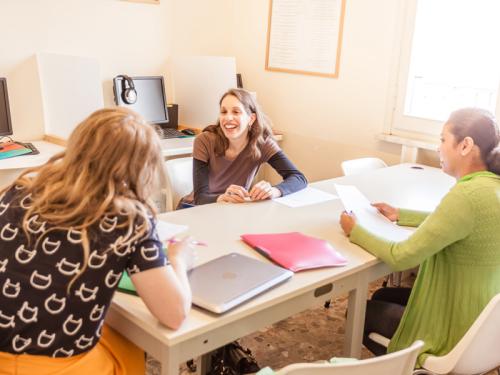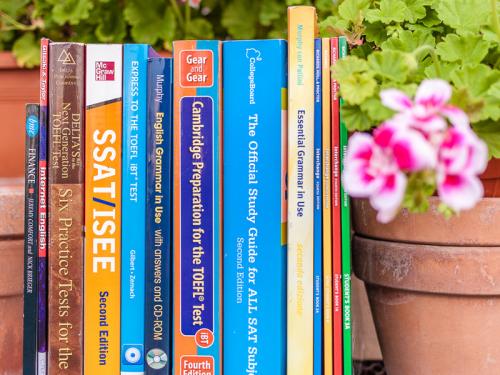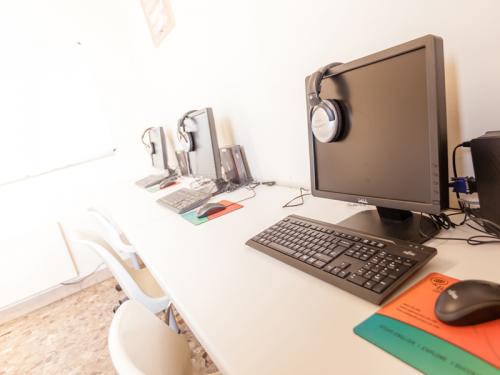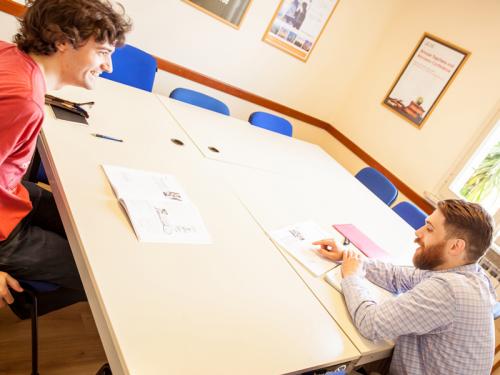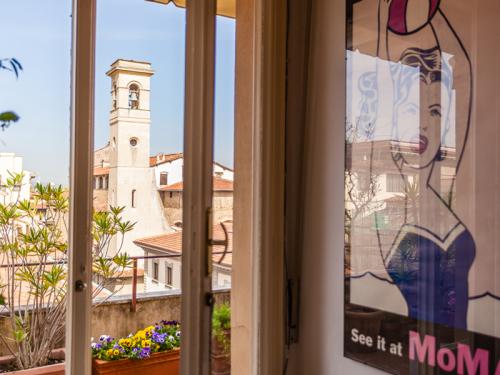TEFL Florence
The Via Lingua Florence TEFL Certificate Course
The course is essentially practical in nature, with just enough theory to provide sound principles on which to base your practice. In the morning, there are input sessions on the skills and methods of teaching and on language awareness. The afternoon consists of guided lesson preparation and in the morning you will complete teaching practice observed by a trainer and feedback on your teaching. Our trainees often comment "I know you said it was intensive, but I didn't realize it was that intensive".
The Via Lingua Teacher Training Program is an intensive four-week 130-hour TEFL certification.
- Courses use a hands-on approach giving trainees the chance to try out new methods and techniques in a supportive learning atmosphere.
- Class size is limited, allowing for individualized instruction.
- Trainees have professional and experienced instructors, with access to many other practicing teachers at the Via Lingua Language Center
- Via Lingua graduates have found jobs teaching English in over 45 countries.
Via Lingua Florence located in the historic center of Florence.. The view from the terrace is of the world-famous Duomo and Piazza della Repubblica.
Comfortable classrooms, a computer lab, and a teaching resource room encourage active learning. The student terrace is a good place to relax and meet international students studying English at the center. You will be immersed in an international cultural experience, with a friendly and supportive, yet professional, atmosphere.
The course consists of two main components:
Three hours of input sessions each day covering:
- a. Teaching Skills & Classroom Management
This element of the course develops your skills in areas such as teaching grammar and vocabulary, creating your own materials and correcting students’ errors. Classroom Management also includes classroom arrangement, managing resource materials, maintaining discipline, giving instructions, the role of student and teacher. - b. Language Awareness
This section of the course aims to consolidate your knowledge of grammar and phonology, and provide practical ideas as to how these can be taught.
Teaching Practice:
- a. 1.5 hours of guided lesson planning each day. Working with the guidance of the trainers, you prepare for the lessons that you will be teaching the next day.
- b. Teaching Practice: the most practical and important element of the course. You teach Italian students of English, and put into practice the skills learnt on the course. Each lesson is observed by one of the trainers, who gives you detailed written and oral feedback.
- c. After each lesson, you have a discussion with the trainer, developing the feedback and suggesting areas for attention. On the days when you are not teaching, you will observe your peers teaching.
Additional components include:
- Observation of experienced teachers:
for the first two mornings of the course, you will observe the trainers teaching classes of Italian students. From the third morning, you will be teaching the students yourself. - Unknown Language:
you are taught an unknown foreign language, generaly Italian. This is designed to give you the experience of learning a totally foreign language entirely through the medium of that language. - Individual sessions each week where you discuss your progress with the course director.
- Job Guidance in group and individual sessions.

Italian Immersion with Via Lingua Florence - NEW FOR 2025!
The main objective of the Italian Immersion sessions in the Via Lingua TEFL Program in Florence for graduates who decide to continue studying (and expanding their knowledge) through lifelong learning experiences in a foreign country: Italy - is to offer them the opportunity to acquire an intercultural competence in a European context. This competence, together with the knowledge of fundamental Italian language and cultural notions, will allow them to broaden their horizons and develop a more globally aware and informed view of the human experience
The second objective is that of acquainting future global citizens and teachers with the basics of the Italian language, the culture which it reflects, and the location - Italy and Florence - in which to operate. The comparison with their own native language and culture will allow for a meaningful reflection on the similarities and the differences which characterize and serve to facilitate their immersion into the new environment for a smooth and quick adaptation to the Italian reality.
The third objective, no less important, is to create the conditions for future teachers and global citizens in which to model the same, authentic experience their students of English find themselves in when studying a foreign language for the first time. Through the emotions ranging from frustration, clarity, confusion, concentration or anxiety which they encounter when approaching a foreign language and culture, they will come to understand the experience of their future students and how the large and small, direct and subtle attention of the teacher contribute to the success of a lesson and the learning itself.

The lessons will be anchored in the Italian language. Each session, with a diverse emphasis, will present the grammar, syntax, vocabulary, phonetics of the Italian language and will be linked by topics that allow for a meaningful comparison of the traditions of the two countries:
- Shopping, supermarkets, Sunday lunch, food and eating habits, slow food movement;
- An Italian song: learning the rhythm of the language by singing;
- Italian and American gestures: a comparison of different ways of communicating.

